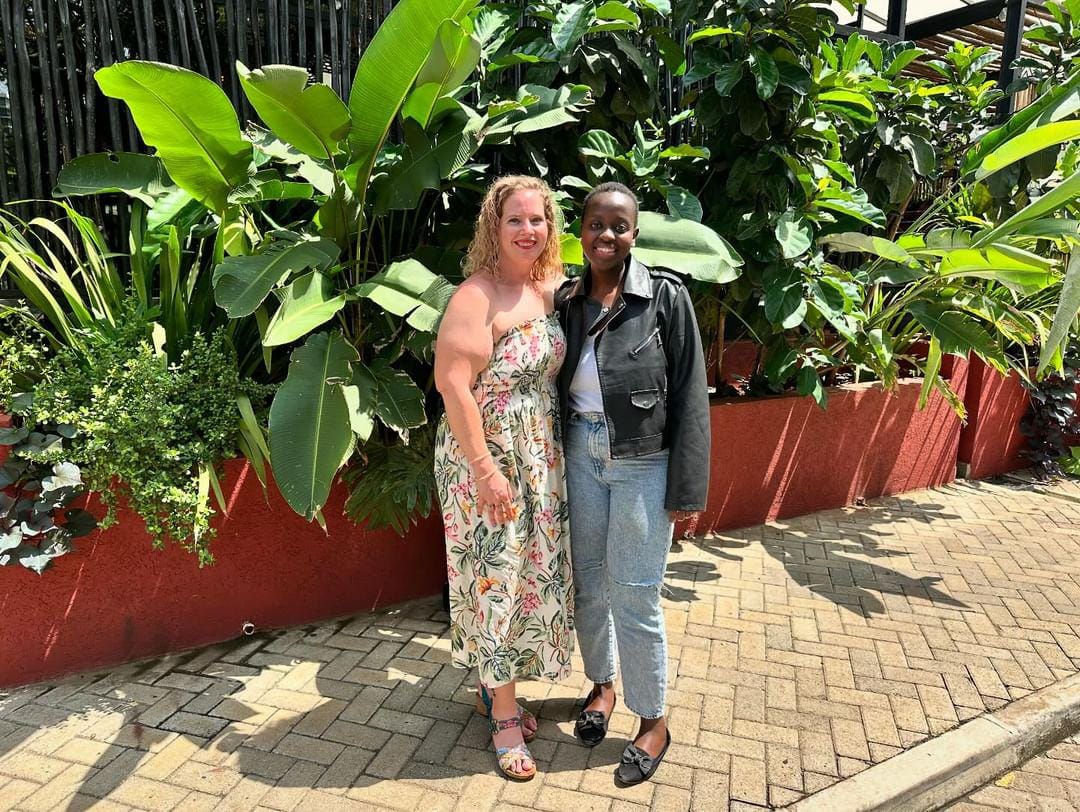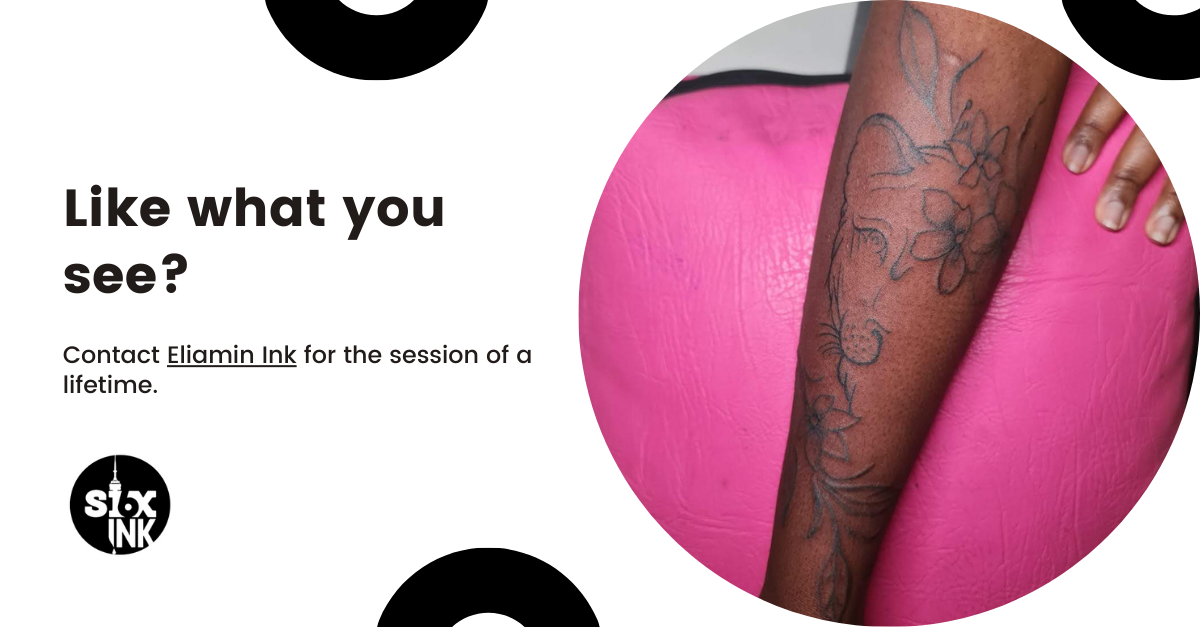More than a bipolar diagnosis
"Most people don't trust their bodies or know how good they can be or allow themselves to go after their dreams. If you're afraid of failing more than you're curious about what's possible, you don't even start and I think it's a big mistake" - Anne Haug.
At 41, Anne Haug is still competing as an elite triathlete and her recent performances suggest she's only getting faster. My WaitingRoom Champion today is an engineer who's been privately managing bipolar for the last 20 years and is sharing her story for the very first time.
Here are the main stories in mental health this week:
- Community leaders petition to ban muguka
- NIS officer dies by suicide
- Neuropsychopharmacology school opens in Nairobi
In this week's edition
TRUE STORY: More than a bipolar diagnosis — Jenna
NEWS: Top 3 stories in mental health this week
TRIAGE: Doctors educate patients online
PAUSE: EliaminInk Tattoos
QUICK: Other stories in mental health this week
REGION: Top mental health stories across the region
ACTIVISM: Men's Mental Health Awareness Month
TRUE STORY
More than a bipolar diagnosis — Jenna

When I first noticed racing thoughts I was about 7 and it didn't occur to me to panic. I adapted to my brain and went after my goals in primary school participating in everything alongside crushing school work. This looked like:
- writing and spelling bee competitions
- camping trips and speaking engagements as a girl guide
- performing in a kids' band (dance, acting and music)
One look at my LinkedIn profile shows you I'm still running and people like Jenna give me the courage to keep going no matter what. I cried after this interview because I couldn't believe I was sitting with another incredible high performer living with bipolar. She's showing me the future can be bright for me too.
Meet my champion
Jenna, how did you find me?
Abbey shouted you out on Instagram, I saw your name and knew you were Kenyan — the first one I've heard talk about bipolar disorder. I'm very interested in bipolar treatment in Kenya because I plan to move from the US with my husband and my biggest fear is medication access. I like that you're trying to change the taboos over there.
I know it's been 12 years since your bipolar diagnosis but you've been on treatment much longer, what happened?
My first depressive episode started when I was 13 and my first hypomanic at 16, but nobody knew what it was so they just kept giving me antidepressants, which made things worse. Finally, I was diagnosed when I was 20 and did 3 years of intensive therapy and medication management.
20 years on medications, how did you get here in one piece?
Hit and miss. When I experienced mania they gave me Ambien (sedative) and that was the cycle. I spent years confused why medicine after medicine didn't do anything to help me and I spiralled downhill to the point of going on disability in college. Over time I've built the confidence to ask doctors targeted questions and seek referrals when I feel I'm not getting quality service. My current psychiatrist teaches me a lot and trusts me to tweak my medications based on my daily activity.
Few people know your diagnosis, why share your story now?
I feel like I've attained a professional reputation that allows me to speak for those who can't. My colleagues know and respect my work and I believe that should continue to speak for itself despite my diagnosis. I've been following you closely and looking forward to meeting you, I also want to be a public mental health advocate now.
--
We're not done telling Jenna's story. Stay tuned for part two of this conversation.
NEWS
The week's top stories
- Community leaders petition to ban muguka: Citing cathinone and cathine as controlled substances as per the Narcotic and Psychotropic Substance Act 1994 of Kenya. Attorney General Justin Muturi urged Kenyans to first seek all the scientific facts and consider muguka's value to Embu County.
- NIS officer dies by suicide: In a note, the deceased wrote "No one should be blamed for this". His colleagues confirmed he was seeking treatment after separation from his wife and a demotion at work. "We are all susceptible to mental illness and although we may not be living with a condition let's educate ourselves to offer support to those struggling," Caroline Njung'e said.
- Neuropsychopharmacology school opens in Nairobi: Its president, Professor Lukoye Atwoli, called for more brain health research in Africa citing risk factors like war, chronic diseases, food insecurity and political instability. The African College of Neuropsychopharmacology brings together 21 researchers at Aga Khan University's Brain and Mind Institute.
PAUSE

TRIAGE
Doctors educate patients online

Dr Chris Obwaka
Last week I found Dr Chris on Instagram. I was pleasantly surprised that he answered granular patient questions like severe leg pain linked to endometriosis and targeted feedback on patient history. The latter is considerate because while asking them to book a consultation first makes sense, he provides enough detail for the patient to weigh their options and maximise a consultation if they choose to see a doctor.
One of Chris' key mantras is pain is not normal and he even validated a patient saying, "I think we fail as doctors sometimes in how we minimise distressing menstrual symptoms". A 3rd party apology could help a patient regain confidence in seeking another doctor, ultimately changing the patient's health trajectory. It's been five years — long story — but I'm considering seeing a gynaecologist again.
Dr Frank Njenga
Dr Njenga has a recurring Business Daily column where he responded to a question on wrist-cutting. He acknowledged that during his training years, they traumatised women who sought help using treatment methods like inhaling concentrated ammonia for hysteria. He feels this may have led many to die by suicide as the people they thought would provide relief harmed them more than their perpetrators at home.
He recently provided a reader with a menu of considerations for their son who's secluded after a failed relationship and is questioning the need for a degree. Dr Njenga felt the reader hadn't provided enough context but shared symptom clusters related to different mental illnesses equipping them with information to self-educate and advocate for their son during treatment.
In a previous edition, I shared that I live with bipolar disorder and adenomyosis. Managing multiple conditions is hard and a good care team could ease the journey but it can take years to find a doctor you feel safe with. Medics like these give me hope.
QUICK
One-liners
- We must fight gambling addiction [Nation]
- Kenya’s Thalia Psychotherapy, TibuHealth selected for Google AI Health program [The Star]
- End men’s silent struggle with mental ill-health [Nation]
- Harsh TB stigma killing patients— KEMRI [The Star]
REGION
Mental Health in Africa
[UG] Exposing Uganda's mental health crisis: Shukla Chiragkumar jumped off the 4th floor of a hotel three days after John Babirukamu, General Manager at Hedge Marketing, also died after jumping off a building. For Men's Mental Health Month, the author paints the complex issues that may contribute to suicide cases in Uganda. [Nile Post]
[TZ] The value of teaching and art in children's development: Stara Thomas, a Bongo Flava artist said, "Despite all my mischief during my studies, I was disciplined in my sports. Every game that children play provides them with something mentally and physically." She suggested that art creates well-rounded individuals who can better navigate stress and life transitions. [The Citizen]
[RW] Ndera Hospital introduces new treatment for opioid addiction: Medication-assisted treatment of opioid addiction involves the use of medicines and psychosocial support like therapy. The treatment, which has not been used in Rwanda, uses medicines such as methadone, buprenorphine and naltrexone. [New Times]
ACTIVISM
Men's Mental Health Awareness Month
There are three stories on male deaths by suicide in this newsletter but many never make it to a headline. This month, do more than check on the men in your life, reflect on why they may not feel safe sharing with you and open up that discussion.
Men also need consistency to heal through repeatedly talking, they can't do that if they sense they're becoming a burden. Don't just ask how they're doing for the sake of ticking a box, sit in their discomfort and be honest about your ability to stay for the entire journey.
Drop everything and check on yourself, how did reading about deaths by suicide make you feel? Now reach out and where relevant, share this with one man in your life. You, dear male subscriber, are my first share and I'd love to hear from you.
Until we meet again.
Receive This Weekly | Buy Me A Coffee | Feedback | Follow My Insta
